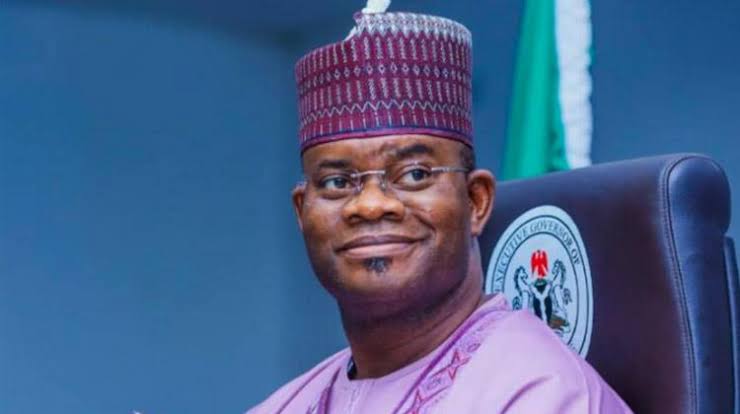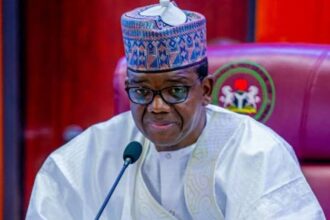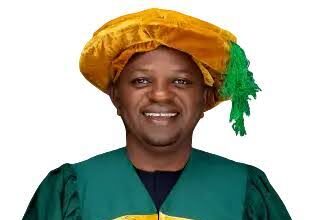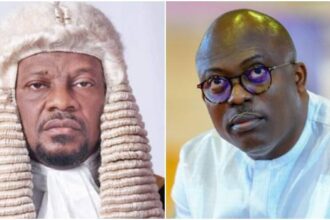The legal imbroglio between the Economic and Financial Crimes Commission (EFCC) and former Kogi State Governor, Yahaya Bello, has stirred considerable controversy and debate across the nation.
Prof Dahiru Sule, a respected Public Affairs Analyst renowned for his expertise in financial matters, has offered a detailed critique of the charges leveled against Bello.
Through an exhaustive analysis, Prof Sule delves into the intricacies of the case, scrutinizing the EFCC’s allegations and highlighting the administration’s steadfast commitment to financial transparency and accountability.
In recent weeks, the Nigerian public has been captivated by the unfolding legal saga involving Yahaya Bello, the erstwhile Governor of Kogi State, and the EFCC.
Against this backdrop, Prof Dahiru Sule has emerged as a prominent voice, providing valuable insights and expert commentary on the matter.
With his extensive background in forensic accounting and public affairs analysis, Prof Sule offers a nuanced perspective that sheds light on the complexities of the case.
During a televised program in Abuja, Prof Sule embarked on a meticulous examination of the charges brought against Yahaya Bello by the EFCC.
Armed with his keen analytical acumen, he scrutinized the allegations with a discerning eye, uncovering numerous discrepancies and inconsistencies.
From factual inaccuracies in the timeline to dubious financial figures, Prof Sule dismantled the EFCC’s case piece by piece, exposing the frailty of its foundation.
A central theme in Prof Sule’s analysis is the remarkable depth of financial expertise within Yahaya Bello’s administration.
Notably, both the governor himself and several key members of his government boasted impressive credentials as chartered accountants of international repute.
This cadre of financial professionals instilled a culture of rigorous oversight and prudent fiscal management, setting the stage for Kogi State’s reputation as a bastion of transparency and accountability.
Of particular concern to Prof Sule were the glaring discrepancies in the timeline presented in the EFCC’s charges.
He underscored the factual impossibility of Yahaya Bello conspiring to commit financial malfeasance in September 2015, a time when he had yet to assume office as Governor of Kogi State. Moreover, Prof Sule dismantled the legal fallacies inherent in the EFCC’s case, highlighting the absence of substantive evidence and the failure to adhere to due process.
Throughout Yahaya Bello’s tenure as governor, Kogi State emerged as a shining example of fiscal accountability and transparency.
Prof Sule lauded the government’s unwavering commitment to openness and integrity in financial management, citing a litany of awards and accolades bestowed upon the state in recognition of its exemplary performance.
From fiscal transparency surveys to awards from prestigious institutions like the World Bank, Kogi State stood as a beacon of good governance under Bello’s leadership.
Sule, also in his Analysis went ahead to directed Nigerians to Visit the Kogi State Government website to see clearly how the Government annually published their financials as well as the state Budget performance reports, he further made particular References to the 2015 budget Income and Expenditures of kogi State as claimed by EFCC, though Bello was not Governor at that time, the 80 Billion he wss accused of Stealing is well above the total income of Kogi State as at 2015, Incase the EFCC meant 2016 the Total income and Expenditures was also not up to the 80Billion accusations by the Commission.
Prof Dahiru made public a hard copy of the 2015 and 2016 Financial summary
(See attached) for further clarifications.
He advised the Commission to always do their due diligence before going Public to avoid any further National embarrassment.
He charged the Public to always make verifications and educate themselves with basic facts and figures to avoid being misled. He advised other State Governors to always emulate YAHAYA BELLO by hiring Professional Accountants in management of the state finances.
He also admonished Governors to publish their State financials on Websites and other public Platforms for public scrutiny, assessment and evaluation as demonstrated by Kogi State Government.










